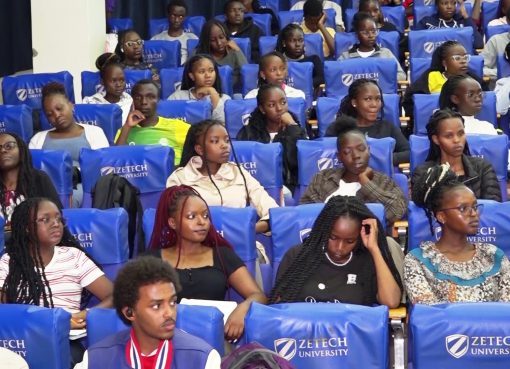Fresh produce stakeholders from Thika underwent a training programme aimed at controlling post-harvest losses which interfere with their profit margins.
The event, which took place at the Kenya Agricultural and Livestock Research Organization Practical Training Centre (KALRO-PTC), was organized by the Fresh Produce Consortium of Kenya in association with ABSA Bank.
Statistics indicate that Kenya loses up to 40 per cent of fresh produce through post-harvest losses, mainly because most farmers and value chain stakeholders do not understand how to manage the losses.
“This training is meant to cushion farmers from losses by imparting knowledge on methods that can manage post-harvest losses. We have established that most of the fresh produce harvested, especially vegetables, fruits, herbs, and spices, ends up rotting in the farms, and it is for this reason that we decided to conduct a capacity-building forum since every post-harvest loss for a farmer is huge for them in terms of business,” said Mr. Ojepat Okisegere, the CEO of the Fresh Produce Consortium of Kenya.
He also noted that fruits and vegetables are the most affected produce in terms of losses and lauded private firms like ABSA, who have come on board to provide financing for facilities required by farmers in terms of technology.
“We are pleased with the support we have received from our current partners and are calling upon other partners as well as the County Government to partner with us so that we can tap into each other’s strengths when it comes to the management of the losses,” stated Okisegere.
Thika Branch ABSA Bank Manager Mr. Hebron Mwangi noted that Kiambu County was economically endowed in terms of agriculture, and because of the value-added chains that had been set up to manage post-harvest losses, many people had gained meaningful employment opportunities from the chains.
“We have noted that up to 40 per cent of produce is lost after each harvest, which means that for a farmer who was to earn Sh20 from the produce, four shillings would be lost, and in most cases, these four shillings are the profit margin for the farmer, which is a huge loss that we intend to restrain. We are excited to be part of the partners that elevate the incomes of our farmers,” said Mwangi.
Speaking to KNA, David Kuria, an avocado farmer, said he had learned a lot at the training and was ready to implement the information to ensure that he received maximum profits from his next harvest.
“The training couldn’t have come at a better time as I am almost harvesting the produce I planted at my farm. I expect to have better profit margins this year now that I know the areas I have to improve on. I also plan to share the information I have received here with other farmers in my area who were unable to attend the training,” said Kuria.
The consortium has conducted pilot forums in Kirinyaga, Meru, Nakuru, and Embu and intends to train stakeholders in other parts of the country as well.
By Hellen Lunalo





